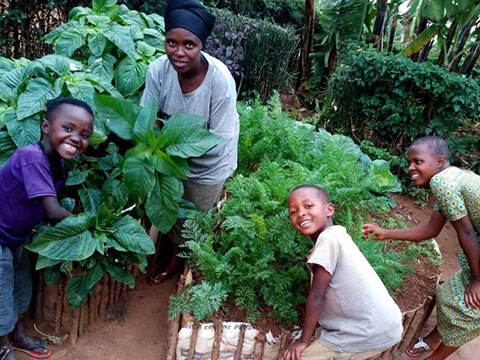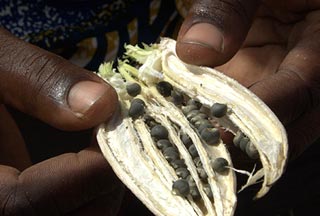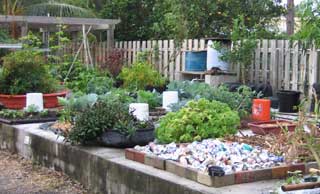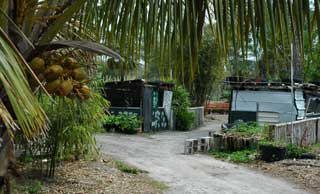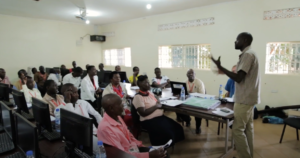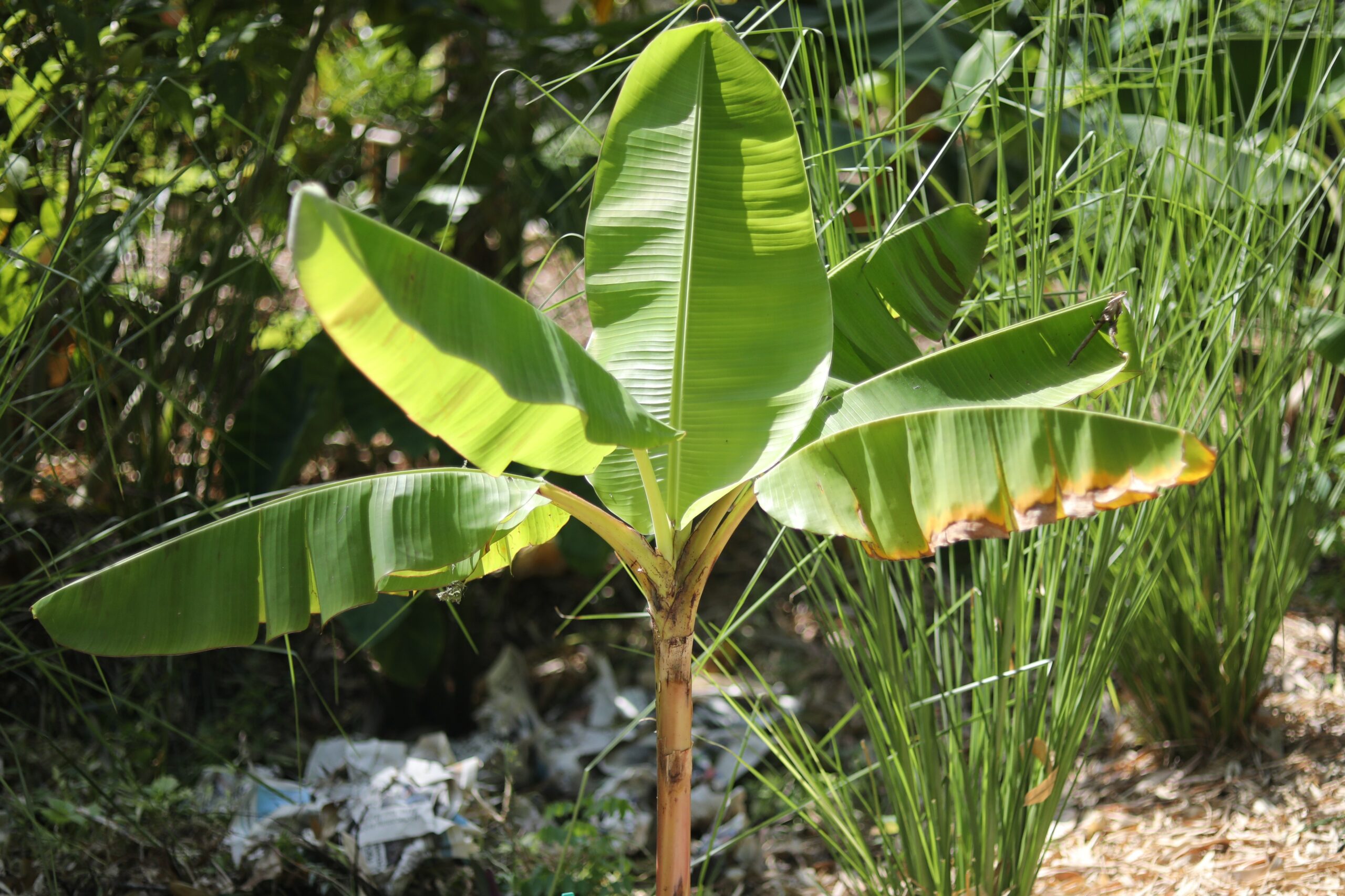ECHO East Africa staff successfully trained thirty-five local participants on how to build and maintain a biogas digester, an appropriate technology which turns cow manure into cooking fuel.
By Leeann Estrada
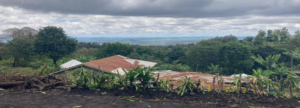
After an hour of traveling through weaving hillsides and down dirt roads, the fresh scent of rain-dampened soil welcomed us to the small village of Monduli: the site of ECHO East Africa’s eighth biogas training. At disembarkment, our team immediately walked toward a young man near a large pile of blocks. We stood patiently in single-file fashion until either of our left or right shoulders shrugged under the weight of a fifty-pound piece of concrete. Several small steps then pitter-pattered the soaked earth slowly up the hill.
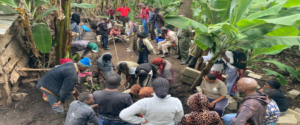
We arrived at the biogas site with focused eyes, achy shoulders, and pounding hearts. Every block hit the ground with a muted thud before we gathered with the others. Nestled between a cattle enclosure and a banana grove was a massive pit measuring 8.5 meters in length, 1.5 meters in width, and 0.8 meters in depth.
The volunteer tradesmen on-site were climbing in and out of the hole either bringing in tools, taking measurements, flattening soil, pouring cement, or assembling cinder blocks. They worked diligently, and, from a bird’s-eye view, they resembled worker ants eagerly building up the colony. Herry, the AT trainer and biogas expert, led their learning with his usual warmth and wit, redirecting and reassessing as needed.
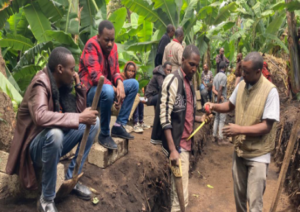
This biogas digester’s basic structure includes a large, heavy-duty, tubular plastic bag (or “bladder”) connecting an inlet and outlet structure made of cinder blocks. The “slurry” (a mix of cow manure and water) is poured into the inlet where it funnels through the bag and produces methane gas. As the methane rises, the bladder inflates. To capture it, a valve punctured into the center connects a gas pipeline to the stove inside the house. Over time, as the materials move through the chamber, what’s left in the outlet are solid manure by-products.
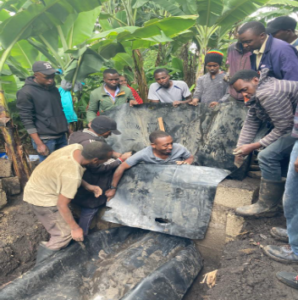
About two weeks after the training is complete and the biogas digester produces methane gas; the widowed property owner – Mary Richard Njema – will be able to utilize this sustainable, cow-dung-fed, renewable energy source to fuel her cook stove. For Mary, the digester provides her and her four other family members with several benefits. Besides the advantage of turning the by-product into a natural fertilizer for her banana grove, the digester reduces her property’s waste stream. This lowers the disease-carrying fly population which keeps her land clean and her children healthy. She can even toss her food scraps in too! Financially, she does not have to outsource fertilizer or purchase cooking gas because she now produces it herself.
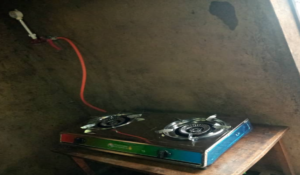
Photo by Magwinza.
Winfrida Nichombe (an ECHO intern) agrees: “I see biogas as an important thing that each farmer should have for clean energy generation and improving the environment. As young people, it gives us an opportunity to employ ourselves and earn income. I’m a development worker and therefore I shall continue promoting it to the communities.” Indeed, in the end, Herry led the 35 participants (60% of whom were men) through a group discussion on the training. They responded positively and were excited to see the results, hoping that in the future more biogas projects can begin in the surrounding areas. One participant even presented Herry with a small banana bunch in appreciation for the training.
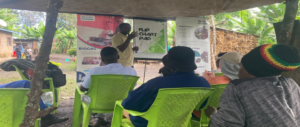
Then, each participant received a certificate of completion. It was well-deserved, for their eagerness to give their time, energy, and skills to a neighbor in need was an example to us all about the transformational power of community and its reflection of Christ’s servant character. Indeed, trainings like these – as small or large as they may be – remain important for changing lives in the present yet set the precedent of stewardship for generations to come.
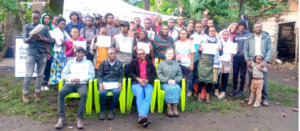
ECHO provides hope against hunger around the globe through agricultural training and resources. As a Christian technical networking and resourcing organization, ECHO builds a diverse, global network and serves that network by sharing validated contextualized agricultural options with technical excellence. ECHO’s goal is to serve its network members to advance food security and sustainable livelihoods. ECHO’s North American Regional Impact Center is located in Fort Myers, Florida with a global presence through four Regional Impact Centers in the USA, Thailand, Tanzania, and Burkina Faso. For more information about ECHO call 239-543-3246 or visit echonet.org or ECHOcommunity.org.
